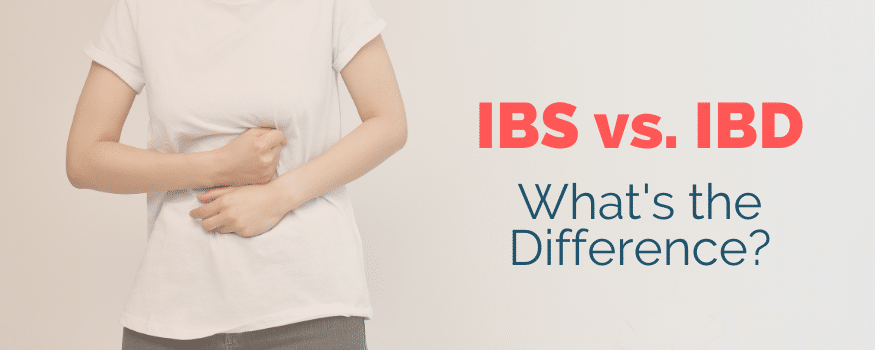
The symptoms overlap—but the causes couldn’t be more different
Both IBS and IBD affect your digestive system. Both can cause pain. Bloating. Urgency. Irregular bowel movements. You might feel similar discomfort from each. But their roots are entirely different. IBS is functional—it alters how your gut behaves. IBD is inflammatory—it alters what your gut becomes.
In IBS, the digestive tract looks normal. No visible damage. In IBD, the gut shows inflammation, ulcers, even bleeding.
So the confusion is understandable—but the separation is crucial. One shifts rhythm. The other rewrites the structure.
IBS doesn’t leave marks—IBD leaves evidence
Irritable Bowel Syndrome is frustrating, but it doesn’t damage tissue. It doesn’t cause inflammation. Scopes don’t show visible signs. Biopsies return normal. That’s what makes it a diagnosis of exclusion.
Inflammatory Bowel Disease includes Crohn’s disease and ulcerative colitis. These leave clear markers. Redness. Swelling. Bleeding. Even scarring.
IBS is invisible on tests. IBD cannot be missed.
They may both start with abdominal pain—but only one shows up in blood, scans, or scopes.
Inflammation is the dividing line
IBD is your immune system attacking your intestines. It’s chronic. Aggressive. And potentially damaging. It causes flare-ups of diarrhea, fatigue, weight loss, and visible bleeding.
IBS, on the other hand, involves no immune attack. No inflammation. It’s about how your gut moves and processes food. Sometimes too fast. Sometimes too slow.
Inflammation changes treatment. It shifts urgency. It determines risk. That’s why this line matters.
IBS often follows stress—IBD follows the immune system
IBS flares with emotional stress. Anxiety and tension can spark symptoms. IBS lives in the space between the brain and gut.
IBD doesn’t need a trigger. It can flare when life is calm. Because the cause isn’t emotional—it’s immune.
That said, both conditions are worsened by stress. The difference is in origin. One reacts to your mood. The other to your immune memory.
The pain might feel the same—but the risks aren’t
IBS pain is often crampy. Temporary. It may come and go with meals or movement. IBD pain can be deeper. Last longer. Include blood or mucus. Lead to fever.
You might think bloating is just IBS—until it’s not. Weight loss. Bleeding. Nighttime urgency. These raise red flags. They mean the gut isn’t just irritated—it’s injured.
That’s when doctors start looking for damage.
Weight loss and bleeding are not part of IBS
You may feel exhausted from IBS—but you won’t lose pounds without reason. You may feel urgency—but you won’t bleed. You may have discomfort—but not fever.
IBD brings those red flags. When you lose weight. When your blood work shows anemia. When night pain wakes you. These are signs of deeper issues.
IBS might disrupt your day. But IBD disrupts your health.
Diagnosis isn’t immediate—it’s a process
You don’t get answers from one test. Not with gut issues. IBS is diagnosed after ruling out everything else. That takes time.
IBD can be spotted sooner. Colonoscopy. Biopsies. Elevated CRP or calprotectin. Visible inflammation tells the story.
But many people wait years before diagnosis. The symptoms overlap. The language is vague. And the gut hides things well.
Treatment plans reflect the risk
IBS is managed with lifestyle: Diet changes. Soluble fiber. Low FODMAP approaches. Stress reduction. Some meds help, but not all.
IBD needs control. Anti-inflammatory meds. Immune modulators. Biologics. Sometimes steroids. Sometimes surgery. It’s a long-term plan—not just symptom relief.
IBS aims for comfort. IBD aims to prevent permanent damage.
You might have both—and not know it
Some people diagnosed with IBD still have IBS symptoms—even in remission. That’s because the inflammation is gone, but sensitivity remains.
This overlap makes treatment more complex. One approach doesn’t fix both.
You need a provider who sees the full picture—not just the scan.
Long-term risks define urgency
IBS is disruptive. But it doesn’t shorten life. It doesn’t scar intestines. It doesn’t increase cancer risk.
IBD can. Especially if untreated. The longer the inflammation lasts, the greater the chance for complications.
That’s why early diagnosis matters. So does sticking with care—even when symptoms improve.
You know your body—but tests tell more
Your discomfort is real. Whether or not tests show a cause. But tests help define the next steps.
If food triggers symptoms, if stress causes pain, if bloating comes and goes—you might have IBS.
If bleeding occurs, if you wake at night to use the bathroom, if weight drops unexpectedly—you might have IBD.
Both are valid. Both deserve treatment. But each needs a different path.
